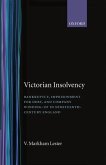This first full-length study of the relationship between political change and the law in Bismarckian and Wilhelmine Germany throws new light on the strengths and weaknesses of German liberalism and the German state, merging ideological and structural explanations for the 'peculiar' nature of modern German development. Focusing on the preparation of the civil code of 1896, it shows how changes in politics affected the ways in which the legal system was considered. The responses of the state, political parties, and interest groups to these changes are analysed to give a detailed picture of the links between political thought and political practice. These links were part of a distinctively German political culture which conditioned the responsiveness of the state to calls for reform.
This is the first full-length study of the relationship between political change and the law in Bismarckian and Wilhelmine Germany. John focuses on the preparation of the civil code of 1896 to show how changes in politics affected the ways in which the legal system was considered, and sheds new light on the strengths and weaknesses of German liberalism and the German state, merging ideological and structural explanations for the nature of modern German development.
This is the first full-length study of the relationship between political change and the law in Bismarckian and Wilhelmine Germany. John focuses on the preparation of the civil code of 1896 to show how changes in politics affected the ways in which the legal system was considered, and sheds new light on the strengths and weaknesses of German liberalism and the German state, merging ideological and structural explanations for the nature of modern German development.








